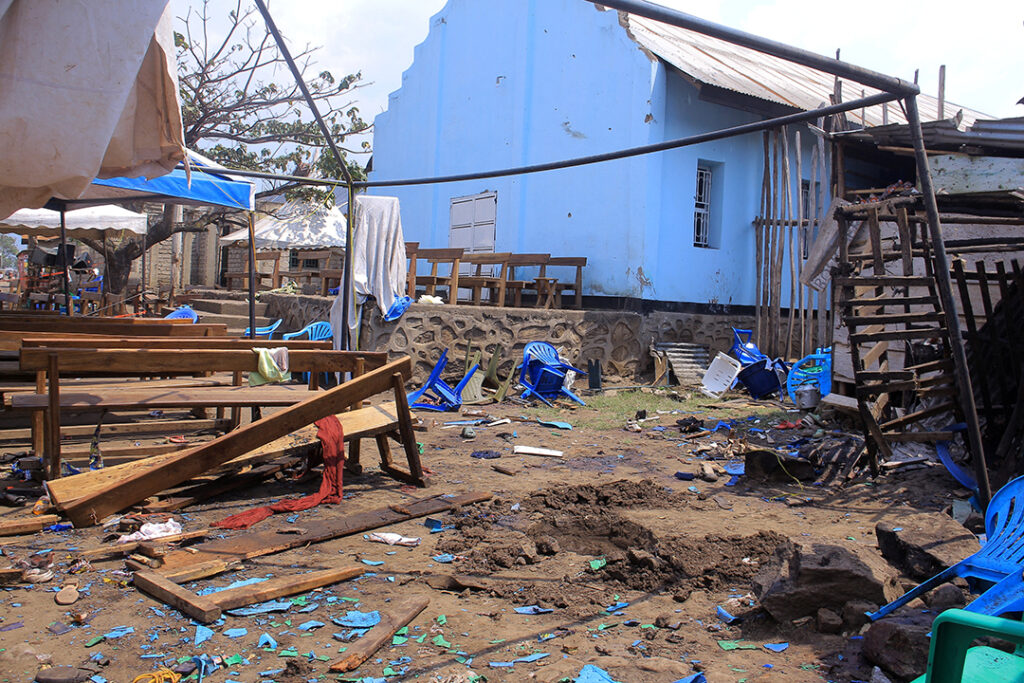ADF STAFF
A new report by the United Nations Panel of Experts on the Democratic Republic of the Congo (DRC) revealed the grim security challenges in the active battleground that is the country’s eastern region.
A battalion of 750 South Sudanese Soldiers were the latest deployed to the country in an attempt to restore security.
They are part of the East African Community Regional Force (EACRF), created to help stem the tide of violence by armed groups.
“Protect the civilians and their properties from any harm,” President Salva Kiir told his troops at a ceremony in Juba on December 28.
The DRC’s citizens in the eastern provinces of Ituri, North Kivu and South Kivu continue to wait for any semblance of peace, calm, law or order.
Burundian, Kenyan, South Sudanese and Ugandan forces make up the EACRF and are working to root out the M23 rebel group, the Islamic State-affiliated Allied Democratic Forces, the Cooperative for the Development of Congo (CODECO), and more than 100 other armed groups and militias.
With its mandate recently extended through 2023, the U.N. peacekeeping mission MONUSCO is active in the theater, protecting civilians while also providing operational, logistical and tactical support to the Congolese armed forces (FARDC) and DRC’s national police to oppose armed groups.
“The security situation in eastern DRC has deteriorated dramatically,” MONSUCO head Bintou Keita told the U.N. Security Council in December.
Hundreds of thousands of people have been forced from their homes in the region, including what Keita said was “an additional estimated 370,000 people who have been uprooted … in the latest round of hostilities involving the M23.”
After negotiations with the M23, the EAC announced on January 16 that the rebels had agreed to make an orderly withdrawal from DRC’s North Kivu province and follow a strict cease-fire.
One day later, DRC President Félix Tshisekedi said he has little faith the M23 will uphold its promises.
“Despite the international pressure, the group is still there,” he said during a panel session at the World Economic Forum in Davos, Switzerland.
“They pretend to move, they act like they are moving, but they’re not. They’re simply moving around, redeploying elsewhere, and they stay in the towns that they have captured.”
Addressing eastern DRC’s local armed groups, U.N. experts reported on two that are fighting over gold mining and trading in the mineral-rich region.
“CODECO factions have continued to expand their areas of control, often attacking civilians and the FARDC,” the report stated. “In turn, the Zaire armed group increased its organization and strength and attacked Congolese security forces and civilians.”
Most troubling, however, was the U.N. report’s examination of a change in recent tactics by the Allied Democratic Forces, a terror group that originated in Uganda and has killed thousands of DRC villagers since 2014.
The report said the group has “continued to expand their area of operations and attack civilians in Beni and Lubero in North Kivu and in southern Ituri” and has begun using improvised explosive devices in urban areas to garner attention on Islamic State group media channels.
It did just that on January 15 when a church bombing in Kasindi killed at least 14 and injured dozens. The Islamic State group took credit for the attack.
The U.N. report underscored eastern DRC’s growing problem: Violence is still rising despite the military buildup and an ongoing state of siege, which has been in place in Ituri and North Kivu provinces since May 2021.
The Congolese and Ugandan armies have conducted joint operations since November 2021, but the U.N. experts observed how “the fourth phase of Operation Shujaa, in September 2022, even led to an increase in Allied Democratic Forces attacks against civilians in retaliation.”
Paluku Kivugha, who lost a relative in the church bombing, summed up the horror of living in eastern DRC.
“Every time there are large groups of people there are risks,” Kivugha told Reuters. “We beg the authorities to bring us security so such acts do not happen again.”

